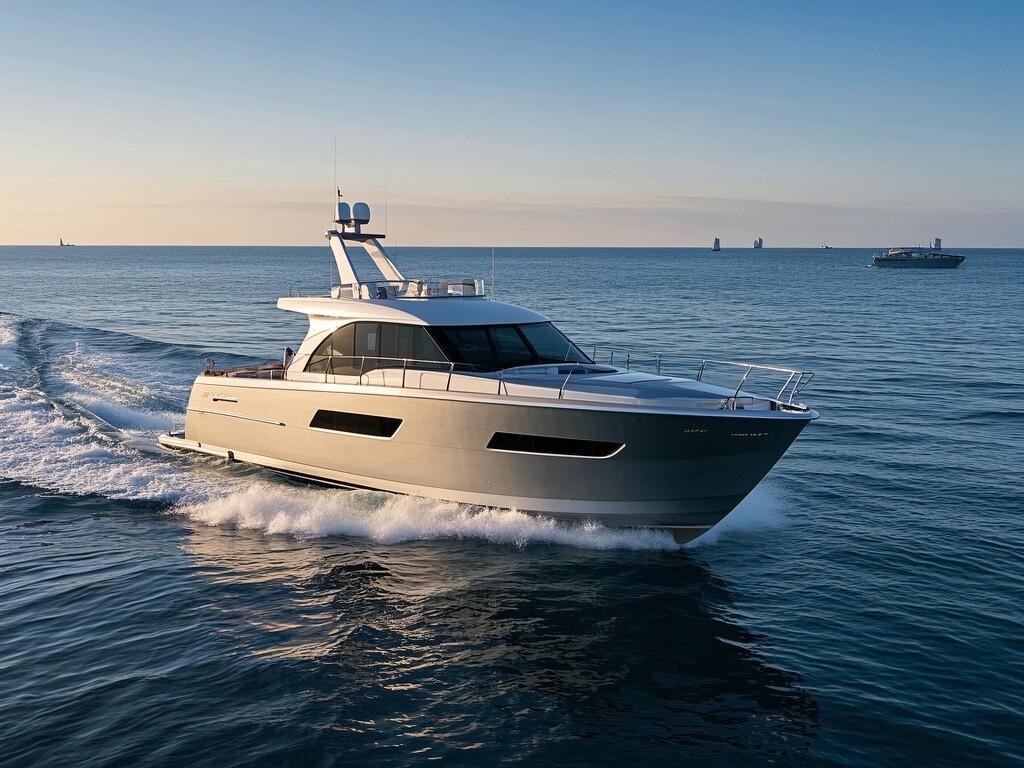NEWS
Set Sail For Quality Hisheng

Why Aluminum Yachts Are Dominating the Marine Industry?
In recent years, aluminum yachts have emerged as a game-changer in the marine industry, revolutionizing yacht design and performance. Their lightweight yet durable construction offers unparalleled advantages, making them a preferred choice for modern boaters. From superior fuel efficiency to corrosion resistance, aluminum yachts are setting new trends across various application areas. Whether you're an enthusiast, a technical evaluator, or a business decision-maker, understanding the rise of aluminum yachts is crucial for navigating the future of maritime innovation.
The Unmatched Advantages of Aluminum Yachts
Aluminum yachts have gained significant traction due to their unique material properties. Unlike traditional fiberglass or steel hulls, aluminum offers an exceptional strength-to-weight ratio, reducing fuel consumption while maintaining structural integrity. This makes them ideal for long-distance cruising and commercial applications where operational costs matter. Corrosion resistance is another critical advantage, especially in saltwater environments. Advanced marine-grade alloys like 5083 and 6082 comply with ISO 12215-5 standards, ensuring longevity even in harsh conditions. Additionally, aluminum's malleability allows for innovative designs, such as the 24m Workboat, which combines functionality with aesthetic appeal.
Market Trends Driving Adoption
The global shift toward sustainable boating solutions has accelerated aluminum yacht demand. According to industry reports, the segment is growing at a CAGR of 6.8%, driven by eco-conscious buyers and stricter emissions regulations. Hybrid propulsion systems are increasingly paired with aluminum hulls to further reduce carbon footprints. Another trend is modular customization—aluminum's weldability enables easy retrofitting for specialized roles like research vessels or luxury charters. For instance, the 24m Workboat exemplifies adaptability with configurable deck layouts for cargo transport or crew support.
Technical Performance Comparison
FAQ: Addressing Common Concerns
Q: Are aluminum yachts more expensive initially?
A: While upfront costs may be 10-15% higher than fiberglass, lifecycle savings on fuel and maintenance offset this quickly.
Q: How does aluminum perform in extreme temperatures?
A: Marine-grade alloys retain properties between -50°C to 150°C, outperforming most alternatives.
Q: Is welding required for repairs?
A: Yes, but certified technicians can perform localized repairs without dry-docking, minimizing downtime.
Why Choose Aluminum? The Future Is Here
For decision-makers evaluating ROI or operators prioritizing reliability, aluminum yachts deliver measurable benefits. Their versatility spans from luxury cruisers to utilitarian workboats, all while meeting evolving environmental standards. Contact our team to explore how aluminum solutions can elevate your maritime operations today.
Related Posts
Online Message
